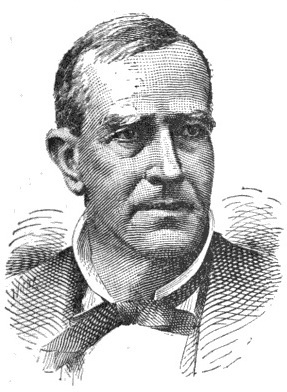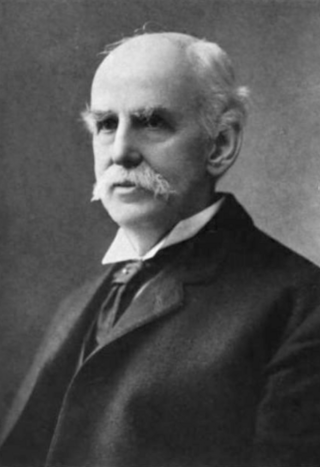
This section of the timeline of United States history concerns events from 1860 to 1899.

The history of the United States from 1865 to 1917 was marked by the Reconstruction era, the Gilded Age, and the Progressive Era, and includes the rise of industrialization and the resulting surge of immigration in the United States.
Antebellum, Latin for "before war", may refer to:

In United States history, the Gilded Age is described as the period from about the 1870s to the late 1890s, which occurred between the Reconstruction Era and the Progressive Era. It was named after an 1873 Mark Twain novel by historians in the 1920s who saw this interval of economic expansion as an era of materialistic excesses combined with political corruption.

William Alexander Graham was a United States senator from North Carolina from 1840 to 1843, a senator later in the Confederate States Senate from 1864 to 1865, the 30th governor of North Carolina from 1845 to 1849 and U.S. secretary of the Navy from 1850 to 1852, under President Millard Fillmore. He was the Whig Party nominee for vice-president in 1852 on a ticket with General Winfield Scott.

Joseph Allan Nevins was an American historian and journalist, known for his extensive work on the history of the Civil War and his biographies of such figures as Grover Cleveland, Hamilton Fish, Henry Ford, and John D. Rockefeller, as well as his public service. He was a leading exponent of business history and oral history.

Silas Woodson was the 21st Governor of Missouri, United States, between January 3, 1873, and January 12, 1875. He was notable for being the first Democrat elected to that position since the Civil War. No Republican would reach the office for over 30 years after Woodson's election.

James Schouler was an American lawyer and historian best known for his historical work History of the United States under the Constitution, 1789–1865.

Richard Hildreth, was an American journalist, author and historian. He is best known for writing his six-volume History of the United States of America covering 1497–1821 and published 1840-1853. Historians consider it a highly accurate political history of the early Republic, but with a strong bias in favor of the Federalist Party and the abolition of slavery.

Edward Perkins Channing was an American historian and an author of a monumental History of the United States in six volumes, for which he won the 1926 Pulitzer Prize for History. His thorough research in printed sources and judicious judgments made the book a standard reference for scholars for decades. Channing taught at Harvard 1883–1929 and trained many PhD's who became professors at major universities.

Charles Daniel Drake was a United States senator from Missouri and Chief Justice of the Court of Claims.
The 18th century in the United States refers to the period in the United States from 1701 through 1800 in the Gregorian calendar. For articles on this period, see:
The 20th century in the United States refers to the period in the United States from 1901 through 2000 in the Gregorian calendar. For information on this period, see:
Class E: History of America is a classification used by the Library of Congress Classification system. This article outlines the structure of Class E.

Mathilde Franziska Anneke was a German writer, feminist, and radical democrat who participated in the Revolutions of 1848–1849. In late 1849, she moved to the United States, where she campaigned to end slavery, agitated to enfranchise women, and ran a girls' school.
The following outline is provided as an overview of and a topical guide to the history of the United States.
The State and National Law School was an early practical training law school founded in 1849 by John W. Fowler in Ballston Spa, New York. It was also known as New York State and National Law School, Ballston Law College, and Fowler's State and National Law School. In 1853 the school relocated to Poughkeepsie, New York; it closed in 1865.

The 19th century began on 1 January 1801, and ended on 31 December 1900 (MCM).

The 1849 New Hampshire gubernatorial election was held on March 13, 1849.